11-0032 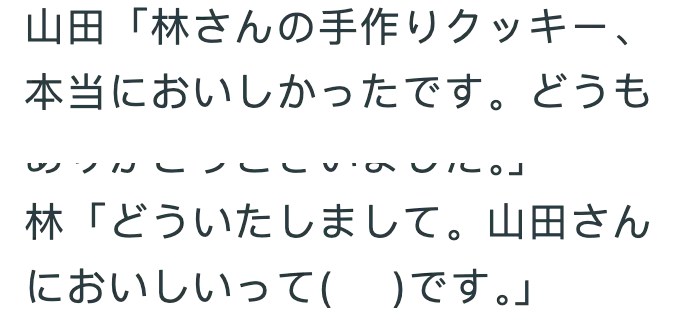

11-0032 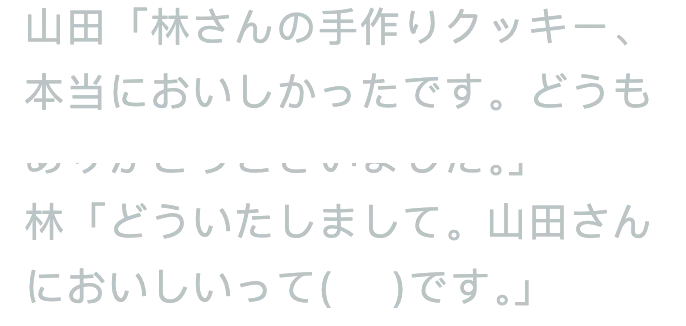

- Yamada: Kobayashi your handmade cookies are so delicious. Thank you.
- Rin: You're welcome. It's great to hear you say yummy, Yamada.
- 言ってもらえてよかった:能得到某人说...... That's great.
- 言ってもらってもよかった:Even if you can get someone to say ...... That's great.
- 言ってあげられてよかった:能给(某人) say ...... That's great.
- 言ってあげてもよかった:even to (someone) ...... That's great.
12-0033 

12-0033 

- The day I didn't go to school with the flu, so many of my friends called worried (and concerned), so happy.
- 1~くれる: means someone else does it for me, "電話をかけてくれた" means to make a phone call
- 2~Aげる: means I do for others
- 3~てみることができる: indicates that one can try to do it
- 4~てみることにした: to indicate a decision to try to do it
13-0034 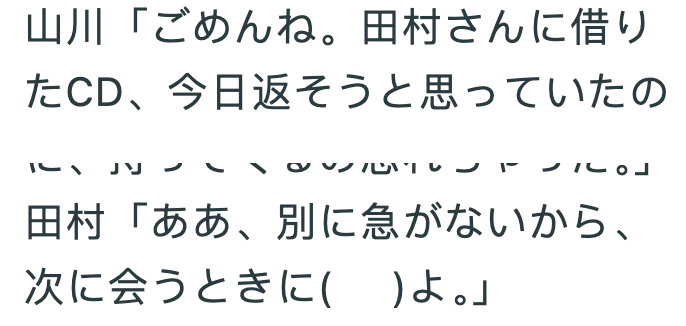

13-0034 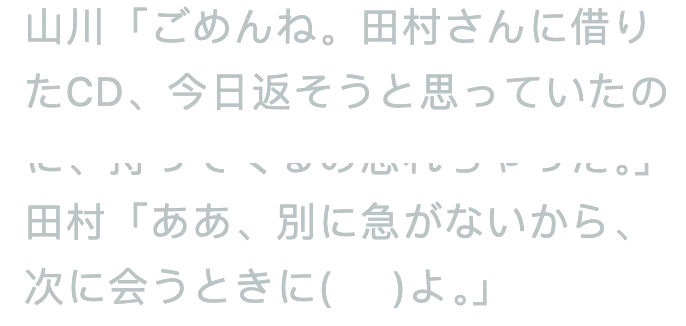

- Yamakawa: I'm sorry, I borrowed the CD from Mr. Tamura, and I was going to return it to you today, but I forgot to bring it here.
- Tamura: Ahhh, there's no rush on that one, just bring it to the next meeting.
- 1持ってきてくれるはずだ:(You)should bring over
- 2持ってきてあげるつもりだ:prepare to bring it over to you
- 3 Hold ってきてくれればいい: (You) just bring it over here
- 4Hold ってきてあげたほうがいい:It is better to bring it over to you
14-0035 

14-0035 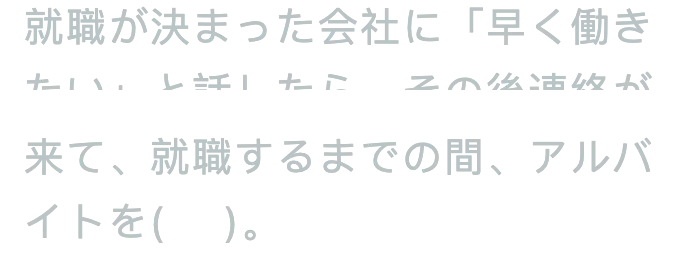

- To the company that I decided to take up employment, I said that I wanted to work quickly, and after that I gave the company the ability to contact me to be able to enable me to work part-time for a period of time before taking up employment. The main idea of this question is to determine who does the action of アルバイトをする. Then distinguish between ことにする (decision) and ことになる (becomes ~. i.e., a non-subjective decision).
- してあげることになった:ことになった。 Indicates a non-subjective decision. Shてあげる. Indicates doing it for someone else.
- Shidemora Kotono: Kotono Kotono. It means to decide. してもらう means someone else does it for me.
- させてあげるこよにした:させてあげる denotes to let ~ do, it is me letting someone else do something.
- させてもらうことになった:させてもらう, meaning let me do it.
15-0036 

15-0036 

- The former family had an organ. It was from a friend who moved out of state 5 years ago. Said he only played it once when he first bought it.
- Correct ordering: 3412
- Knowledge point: "動詞た形 + きりだ": a... Never again... , which means that after the former item occurred, the latter item never occurred again, so option 2 should be filled in the fourth blank. "Overseas に引っ越した" modifies "友達", so option 3 should be put before option 4. "もらったときに」indicates a specific point in time, so it is placed before option 2.










